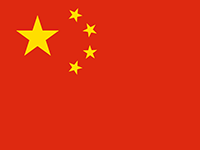Comparative of 8/20 waveform and 10/350
In this paper, using Glushakow Dion Neri and Bruce white paper as the foundation, the white paper after the approval by the IEEE is determined for academic theoretical document.
Before we start, this first pay close attention to the fact that DuoNian, the surge protector (also called transient voltage suppressor TVSS) test scheme with ANSI/IEEE C62.41 (the American national standards committee/institute of electrical and electronics engineers C62.41 standard for testing specification.) And in practical applications, according to the standard of design, production, testing of the surge protector in the global market has a good application effect.
A, history review: 10/350 as grade a test the origin of the waveform
Before 1995, most countries, including the United States, all use 8/20 waveform test surge protection devices (or called surge arresters, surge protector), "international electrical standard" (IEC) also used the same way. But since then, in the IEC 61643 standard file, but to install in the building into the line is in the surge protector introduced a new "power system protection grade 1" test plan. In order to adapt to the IEC 61643 impact of pulse current (Iimp) requirement, testing institutions will have to test waveforms to 10/350. And this one change of so-called "theory" is: 10/350 of the waveform is more close to direct lightning, therefore, of the wave parameters in such a surge protector to on (IEC says the effectiveness of the SPD) use 10/350 waveform test than 8/20 waveform more appropriate.
However, after a lot of reliable in tracking after investigation, the test scheme IEEE think made similar changes don't have sufficient reason, therefore still stick with 8/20 waveform. But in reality, the introduction of the IEC "power system protection grade 1" test new scheme in the surge protector but caused chaos on the market: in some European manufacturers, at the instigation of, "power system level 1 surge protector" in the design, production in accordance with the 10/350 test for reference, the pulse vacuum tubes as protection components, and announced that the so-called "mainstream" a protector. They basis is simple: "since direct lightning of the wave can only use 10/350 of the pulse waveform kindness, so, ANSI/IEEE on 8/20 of the waveform test standard would not be sufficient to play the role of lightning protection directly."
Second, the accordance of IEC choose 10/350 as the technical basis
According to the IEC "new requirements, test" protection "struck by lightning surge protector directly" should be adopted when 10/350 shock pulse waveform, and test "indirect lightning protection of the surge protector" should use 8/20 waveform.
From the right, 10/350 of the 100 kA visible waveform pulse discharge strength is 8/20 of the pulse waveform 20 kA 125 times.
125 x 0.4 = 50
By analogy: we can come to the following conclusion:
If using thermistors MOV as surge suppression components, designing a protective 100 kA shock pulse waveform is 10/350 of the protector, it has the ability to discharge must be equivalent to 8/20 of the 2500 kA protection shock pulse waveform of ability.
The calculation process of above conclusions published in IEC specifications file, and use this as proof of theoretical basis, "according to 10/350 waveform test design protector the protection ability according to 8/20 waveform test than the protector to high 20 times above."
Three, to the dispute of 10/350 waveform
We discuss this conclusion is correct before you see such a few facts:
According to 8/20 design surge protector the application situation
DuoNian to, in all the ANSI/IEEE standard test of low voltage surge protector the market, has not, no need to design a surge in 2500 kA ability the protector. The reason is that:
(1) the application of DuoNian reality tell us: even in the worst place lightning phenomenon, surge capacity in 8/20 of the 400 kA waveform protector is protection level, deal with extremely bad direct lightning events have more than sufficient.
(2) in the world scope, use 8/20 test waveform in protecting sensitive electronic equipment protector from direct lightning strike represented by the performance has been very stable and reliable.
The IEC internal about whether should use 10/350 waveform also controversial
In 1995, 10/350 test waveforms first appeared in IEC 61312-1 standard file. But in previous, whether within the IEC after use 10/350 waveform there are different views on the opposition, as people to improve understanding of the direct lightning, the voice of the opposition more and more is also high.
In 1995 the TC 81 committee meeting held by DuoFang lobbying, 18 elections in the country to 10/350 14 test waveforms bill vetoed it, and through the bill.
In 2000, in "IEC 61312-2-3:2000" amendments to a vote, 19 national elections has the countries to reduce favoring for 13. From then on we can see, to 2000, in the IEC internal nearly a third of the country 10/350 test would oppose waveform attitude.
Four, IEEE to direct lightning research
In the IEC 61312-1 standard file after launch, IEEE C 62.41.2-2002 standard files on the "first lightning (first stroke-lightning) were assessed evaluation scope, including IEC 61312 documents specified in the peak time for" half "of the 350 milliseconds shock pulse (10/350), and wave that the conclusion:
"IEC so-called 'surge protection requirements of high-energy" is based on the limited data analysis, and the reason is based on: when we put the' requirements "and C62 series documents in accordance with the IEEE surge protector of the design of the actual application effect compared, it found that the 'requirements' is not reliable."
The IEEE review the following three problems:
(1) who first proposed 10/350 waveform , based on What?
(2) in the surge protector the test decision waveform, what should I with what kind of technical data for basis?
(3) How many similarity between 10/350 waveform and direct lightning?
(3) How many similarity between 10/350 waveform and direct lightning?
 English
English
 简体中文
简体中文